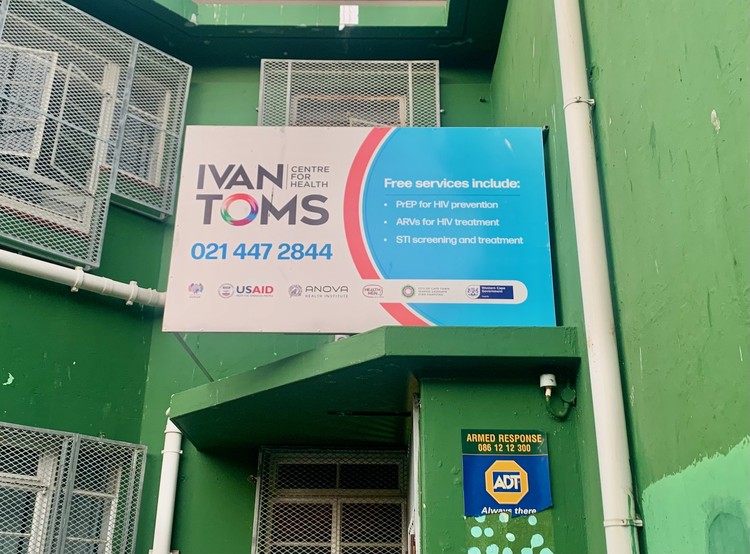
16 July 2025
The Ivan Toms Centre for Health building in Green Point, Cape Town, was closed after US aid was withdrawn. Archive photo: Jesse Copelyn
South Africa is staging a sequel to Mbeki-era denialism, only this time, the science, solutions, and costs are clearer.
Tragically, we have politicians showing the same disregard for despairing public health experts sounding the alarm and civil society’s calls for engagement. Treasury’s token contribution, President Ramaphosa’s and the GNU’s silence, Deputy President Paul Mashatile’s empty promises, and Health Minister Dr Aaron Motsoaledi’s fabricated success, mean the current child and adult deaths and unnecessary infections are mounting.
Exactly six months after the abrupt withdrawal of billions of Rands in support to South Africa from the President’s Emergency Plan for AIDS Relief (PEPFAR), there is still no plan.
In May, in response to concerns about HIV service weaknesses, Minister Motsoaledi claimed 520,000 people were initiated on HIV treatment between February and April, a number already almost half-way towards his ‘Close the Gap’ campaign target. This remarkable success claimed by the minister occurred during a collapse in funding, staffing, and testing, and was achieved simply with ‘roadshows’ and unnamed community programmes.
This would represent one of the most remarkable HIV global service delivery achievements ever, given three months of massive funding withdrawal and service collapse.
Yet, in the last few weeks:
Repeated offers of help and pleas for meetings and consultations from local experts and civil society have been ignored by the country’s leaders. This includes a letter signed by numerous organisations and individuals from across the country’s most respected institutions, setting 7 July as a deadline for a response.
Constant promises that the ‘plans’ for mitigating the HIV programme will be released have not materialised. Reassurances that provinces are getting support is not being experienced by any of the provincial colleagues I speak to.
Deputy President Paul Mashatile has doubled down on the 520,000 number, telling Parliament that the withdrawal of PEPFAR funding “has spurred on” the government to become more “self-reliant,” using BRICS, Lotto, and domestic funding to plug the gap, with no details as to how this will happen. He claimed no patient will suffer, despite local studies warning of massive waves of new deaths and infections, multiple anecdotes in the press to the contrary, and submissions by public figures to the Portfolio Committee on Health on service interruptions.
Both Mashatile and Motsoaledi have repeatedly lamented, correctly, the severe reliance of our health system on external donors, but have not acknowledged that they have been fully responsible for the health system for almost all of PEPFAR’s existence.
Concerned academics directly responsible for shaping the Department of Health’s HIV response, who have called for the Minister to explain his 520,000 figure, have not been answered.
This crisis is fixable. It requires immediate reinvestment in defunded organisations, the rehiring of experienced managers, and an honest medium-term plan for service integration within our health system. None of this is happening.
There is no urgency, no leadership, and no public plan. Motsoaledi says there is “no collapse”- but patients are dying without diagnosis, and others are acquiring HIV without prevention. Call it what you want. The system is failing. The minister’s claims of ‘no collapse’ ring hollow for the people left stranded with no services, waiting to die for want of a diagnosis and treatment, or unnecessarily contracting HIV for lack of effective prevention.
Recent local modelling has shown the PEPFAR collapse may result in tens of thousands of preventable deaths, if services are not replaced. The Ramaphosa–Motsoaledi–GNU era risks a ruined legacy, not for failing to stop this crisis, but for pretending it wasn’t happening.